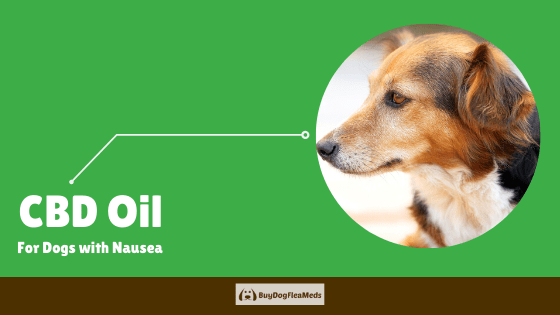How Can Cbd Oil Help Dogs With Nausea
While people can be nauseous from time to time, ever wondered how dogs and cats end up with nausea? From its definition, causes, symptoms, and treatment, read on to find out how nausea affects dogs and cats.
What Is Nausea in Dogs and Cats?
By definition, nausea is a clinical term on feeling sick with tendencies of vomiting (Nausea, 2019). In dogs and cats, nausea can occur when there is an imbalance between the nervous system and the digestive tract (1-800-PetMeds, 2019).
What Causes Nausea in Dogs and Cats?
Since nausea is a non-specific symptom, it can result from a wide variety of causes (Primovic, 2018). For better context, causes of nausea in dogs and cats can be divided into two categories – those related to the gastrointestinal tract (GIT) and those that are not.
GIT-related Causes
- Cancer (adenocarcinoma, lymphoma, etc.)
- Food intolerance
- Gastrointestinal ulceration
- Infectious diseases (fungi, intestinal parasites, protozoa)
- Inflammatory bowel disease (IBD)
- Motility disorders
- Partial obstructions
- Severe constipation or obstipation
Causes Outside of GIT
- Anxiety
- Chronic kidney disease
- Diaphragmatic hernia
- Diseases in the central nervous system
- Eating too much food
- Heartworm disease (also causes exercise intolerance and coughing)
- Hepatic lipidosis in cats (also known as “fatty liver syndrome”)
- Hyperthyroidism in cats
- Inflammatory liver disease
- Lung disease
- Motion sickness
- Pancreatitis
- Stress caused by veterinary visits, being left in a hot car, or car accidents (Byers, 2014).
Symptoms of Nausea in Dogs and Cats
Although the causes of nausea in dogs and cats might be challenging to diagnose, its physical symptoms are rather easy to identify. Here are 17 symptoms of a nauseous dog or cat:
- Acting very hungry only to sniff or lick the food
- Chewing or grinding teeth even with nothing on its mouth
- Diarrhea
- Excessive salivating and drooling
- Excessive yawning
- Frequent yowling near food
- Hoarseness
- Hunched up sitting, especially by the water bowl
- Increased drinking
- Licking and smacking the lips excessively
- Licking only gravy and not the actual food
- Listlessness
- Loss of appetite or anorexia
- Pawing at the mouth
- Playing with water
- Shivering
- Vomiting (foamy, solids, or watery bile) or dry heaving (Kari, 2014)
While most of the physical symptoms here might not be lethal, it is important to take these seriously. If neglected, nausea can be a life-threatening condition that can take a toll on a dog or cat’s life.
How Nausea in Dogs and Cats Can Be Prevented
As a general rule of thumb, prevention is always better than cure. Here are some lifestyle changes that can make dogs and cats less prone to nausea:
- Introduce them to traveling at a young age.
- Before traveling, limit their food intake.
- While traveling, make them as comfortable as possible.
- Limit food and water intake for 3 to 4 hours. A few tablespoons of water can be offered every 20 minutes if no vomiting episodes happened.
- Play soothing classical music to help them relax.
- Spray calming aromatherapy.
- Give them all-natural supplements (Canna-Pet, 2016).
Natural Remedies to Treat Nausea in Dogs and Cats
Knowing that nausea in dogs and cats have varying causes, treatment will rely hugely on the diagnosed cause. With that, here are five natural remedies to soothe a nauseous pet:
Metoclopramide
Metoclopramide works by normalizing stomach contractions that cause bile refluxes from the intestine to the stomach. This results in food and bile passing in the correct direction. This supplement can also cross a biochemical blood-brain barrier to regulate nausea in both dogs and cats (1-800-PetMeds, n.d.).
Famotidine
Famotidine is a non-prescribed medication that reduces stomach acid produced by dogs and cats. It can also aid in preventing and healing stomach ulcers, esophagitis, gastritis, and GERD. Although it is not FDA-approved, it is commonly prescribed by veterinarians (1-800-PetMeds, n.d.).
Nux Vomica
Nux Vomica is a plant-based homeopathic supplement that eases constipation, detoxifies the liver, and re-stimulates appetite for both dogs and cats. It can also be used as a vomit remedy for nausea caused by overeating, diet changes, and colitis (VetUK, n.d.).
Arsenicum album
Another homeopathic substance, Arsenicum album is beneficial for dogs and cats that have consumed rubbish or spoilt food. It can also help with gastroenteritis, anxiety, and restlessness – which are common symptoms of nausea (Denes, n.d.).
Cannabidiol (CBD)
One of the 66 cannabinoids in the cannabis plant, CBD is a natural and non-toxic substance with no psychoactive properties. Commonly marketed as oil, it can be rubbed directly on the skin, ingested, or mixed with food. For nauseous dogs and cats, CBD oil can be used to relieve anxiety and prevent seizures.
CBD for Nausea Treatment in Dogs and Cats
According to a study at the University of Guelph, CBD alleviates vomiting and nausea via indirect agonism of somatodendritic autoreceptors located in the dorsal raphe nucleus (Rock, et al., 2012).
Aside from treating nausea as a whole, CBD oil also targets physical symptoms of illnesses in dogs and cats. While CBD oil has a variety of benefits, mentioned below are CBD’s effects on nausea and its symptoms:
- Anti-inflammatory
- Relieves pain
- Reduces anxiety
- Prevents epilepsy, seizures, and Inflammatory Bowel Disease (IBD)
- Increases appetite (Chen, 2018)
How Much CBD Can Be Used to Treat Nausea in Dogs and Cats?
Depending on their needs, treating nausea in dogs and cats with CBDs may require varying doses. For basics, 1 to 5 milligrams of CBD can be taken every 10 pounds of body weight. It must be taken every 8 hours or as required.
Below is a table showing in-depth doses of CBDs depending on the type of dosage needed:
Weight | Low Dosage | Moderate Dosage | Strong Dosage |
| Approx. 10 lbs. | 1 milligram | 3 milligrams | 5 milligrams |
| Approx. 20 lbs. | 2 milligrams | 6 milligrams | 10 milligrams |
| Approx. 30 lbs. | 3 milligrams | 8 milligrams | 15 milligrams |
| Approx. 40 lbs. | 4 milligrams | 10 milligrams | 20 milligrams |
| Approx. 50 lbs. | 5 milligrams | 12 milligrams | 25 milligrams |
| Approx. 60 lbs. | 6 milligrams | 14 milligrams | 30 milligrams |
| Approx. 70 lbs. | 7 milligrams | 16 milligrams | 35 milligrams |
| Approx. 80 lbs. | 8 milligrams | 18 milligrams | 40 milligrams |
| Approx. 90 lbs. | 9 milligrams | 20 milligrams | 45 milligrams |
| Approx. 100 lbs. | 10 milligrams | 24 milligrams | 50 milligrams |
Source: All the Best Pet Care (AllTheBestPetCare, n.d.)
Conclusion
Although the science behind the causes, symptoms, and treatment for nausea in dogs and cats are still under works, it is a good thing that veterinarians and pet owners have a variety of medications to choose from. By being open-minded to natural remedies like CBD, dogs and cats can live happy and healthy lives free from stress and life-threatening illnesses.
References
- 1-800-PetMeds. (2019). How to Reduce Your Pet’s Nausea. Retrieved from 1-800-PetMeds: https://www.1800petmeds.com/education/tips-reducing-pet-nausea-42.htm
- 1-800-PetMeds. (n.d.). Cerenia. Retrieved from 1-800-PetMeds: https://www.1800petmeds.com/Cerenia-prod11268.html?Ntt=Cerenia
- 1-800-PetMeds. (n.d.). Famotidine. Retrieved from 1-800-PetMeds: https://www.1800petmeds.com/Famotidine-prod11171.html
- 1-800-PetMeds. (n.d.). Metoclopramide. Retrieved from 1-800-PetMeds: https://www.1800petmeds.com/Metoclopramide-prod10210.html
- AllTheBestPetCare. (n.d.). CBD Doses for Dogs and Cats. Retrieved from All The Best Pet Care: https://www.allthebestpetcare.com/pet-nutrition/cbd-dose-dog-cat/
- Byers, C. G. (2014, November 10). Nausea – Do You Know What Your Pet Is Saying? Retrieved from CriticalCareDVM: https://criticalcaredvm.com/nausea-listen-pet/
- Canna-Pet. (2016, December 6). Cat Nausea and Related Conditions: Recognizing and Treating Signs & Symptoms. Retrieved from Canna-Pet: https://canna-pet.com/cat-nausea-natural-treatments/
- Chambreau, C. (2018, July 3). How homeopathy can heal your pet’s allergies. Retrieved from Animal Wellness: https://animalwellnessmagazine.com/homeopathy-allergies/
- Chen, S. (2018, July 9). CBD for Dogs and Cats: The Ultimate Guide + 25 Health Benefits. Retrieved from Natural Pet Living: https://www.naturalpetliving.com/cbd-for-dogs-and-cats/#what_is_cbd
- Denes. (n.d.). Arsenicum Album 30C 15ML. Retrieved from Denes: https://www.denes.com/arsenicum-album-30c-15ml.html
- Kari. (2014, Apri 26). That’s Sickening (Signs Of Nausea in Cats and Dogs). Retrieved from Kari Kells: http://www.karikells.com/Petsitter/2014/thats-sickening-signs-of-nausea-in-cats-and-dogs/
- Nausea. (2019). Retrieved from Lexico: https://www.lexico.com/en/definition/nausea
- Primovic, D. (2018, May 2018). Symptoms and Causes of Nausea in Dogs. Retrieved from PetPlace: https://www.petplace.com/article/dogs/pet-health/dog-health/dog-diseases-symptoms/symptoms-and-causes-of-nausea-in-dogs/
- Rock, E., Bolognini, D., Limebeer, C., Cascio, M., Anavi-Goffer, S., Fletcher, P., . . . Parker, L. (2012, April). Cannabidiol, a non-psychotropic component of cannabis, attenuates vomiting and nausea-like behaviour via indirect agonism of 5-HT(1A) somatodendritic autoreceptors in the dorsal raphe nucleus. Retrieved from PubMed.gov: https://www.ncbi.nlm.nih.gov/pubmed/21827451
- VetUK. (n.d.). Denes Nux Vomica 30C Drops for Cats and Dogs 15ml. Retrieved from VetUK: https://www.vetuk.co.uk/dog-supplements-cat-supplements-homeopathic-and-natural-remedies-c-5_184/denes-nux-vomica-30c-drops-for-cats-and-dogs-15ml-p-41173
- https://www.ncbi.nlm.nih.gov/pmc/articles/PMC6065210/
- https://www.ncbi.nlm.nih.gov/pmc/articles/PMC6038832/
- https://www.ncbi.nlm.nih.gov/pubmed/2900742

